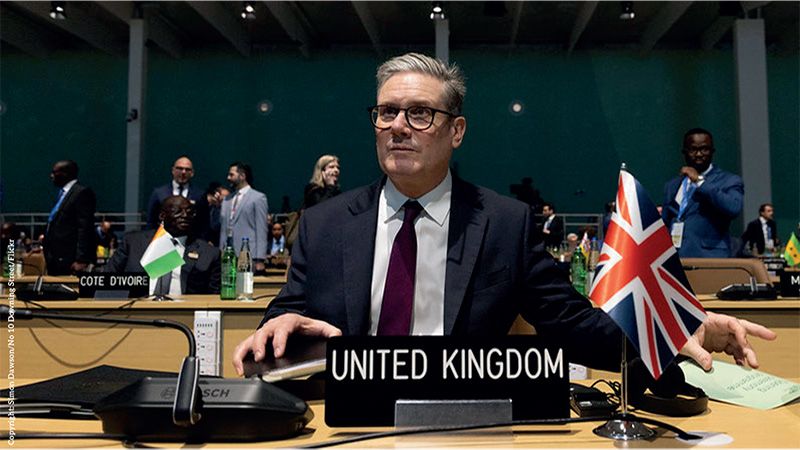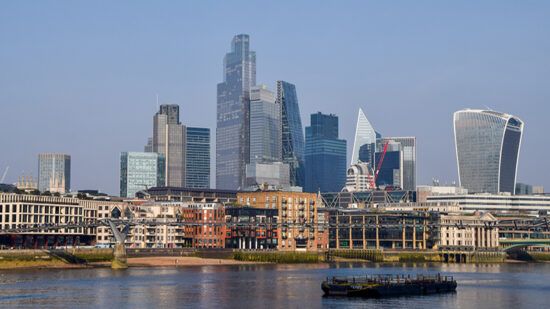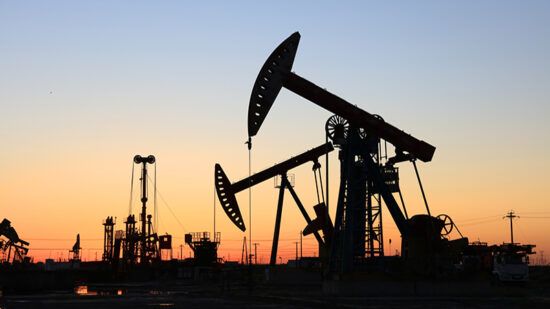UK prime minister Keir Starmer has unveiled the UK’s “ambitious” update to its decarbonisation target, committing to a reduction of 81% by 2035 compared to 1990 levels.
As part of its international obligations, the UK must submit a new emissions reduction target every five years – known as ‘nationally determined contributions’ (NDCs). The last time they did this, the UK committed to a 68% emissions cut by 2030, compared with 1990 levels.
In his speech at COP29, Starmer said there were two paths ahead: one, the “path of inaction and delay”, or second, the path “fixed firmly on the opportunities of tomorrow” – towards national security, energy independence and “the economic stability necessary to boost living standards for working people”.
He continued: “A global problem also requires global partnership and responsible international co-operation, which is why we took the opportunity at this COP to again urge all parties to come forward with ambitious targets of their own.”
James Alexander, UKSIF CEO, James Alexander, said the new decarbonisation target was encouraging: “In a global race for capital, clear and consistent policy signals like this are crucial to attracting private investment into the UK’s transition to net zero, which in turn should turbocharge economic growth and create good-quality jobs across the country.”
However, the latest fiscal measures “raise concerns about our decarbonisation momentum”, warned Stuart Lemmon, CEO of EcoAct, especially with the 2025 global climate assessment approaching.
“With implementation plans missing for half of our required emissions cuts and rising transition costs, urgent action is needed. As international competitors advance their green frameworks, Britain must reinforce its leadership position. This demands clear policy guidelines, robust reporting mechanisms and a predictable regulatory environment that empowers businesses to drive the low-carbon transition. Success isn’t just about meeting climate goals – it’s about securing Britain’s competitive edge in the growing global green economy.”
Meanwhile, Dominic Eagleton, a senior campaigner at Global Witness, described the government’s decision to invest in carbon capture to meet the UK’s target “like bailing out a sinking ship with a gold-plated sieve”.
“Starmer is handing billions in taxpayer cash to profit-rich oil companies for a technology that has a 30-year track record of failure,” he asserted.
Loss and Damage fund to start financing projects in 2025
Meanwhile, it was also announced the Loss and Damage fund, set up in COP27 in Egypt after many years of planning, is ready to start financing projects in 2025.
On the second day of COP29, a number of agreements were signed in relation to the Loss and Damage fund to begin the disbursing of “much-needed and long-awaited funds”.
At the summit Sweden announced a $19m commitment to the fund, subject to government approval, which brings the total pledges to more than $720m.
A COP29 statement said: “With this important milestone reached, the Fund is now expected to start financing projects in 2025.”
Concluding the first day of the World Leaders Climate Action Summit at COP29, a group of leading multilateral development banks (MDBs) estimated their annual collective climate financing contributions for low- and middle-income countries to reach $120bn by 2030. This includes $42bn for adaptation. For high-income countries, the annual collective climate financing is projected to reach $50bn.
The MDBs included the World Bank Group, the European Investment Bank (EIB), the Council of Europe Development Bank (CEB), the European Bank for Reconstruction and Development (EBRD) and the Asian Development Bank (ADB).
Commenting on the estimates, the COP29 president Mukhtar Babayev said: “Every contribution is welcome, but there is still a clear gap between where we are and where we need to be. We are working closely with the shareholders of international financial institutions at COP29 as we seek to build the foundations of a fair and ambitious new climate finance goal.
“We must deliver what the world expects, including climate financing that is several multiples beyond existing arrangements, adequate to the scale and urgency of the problem. As a presidency, we are committed to ensuring that party and non-party stakeholders have spaces available to discuss and progress such means of implementation.”
The COP29 statement said: “in other significant developments of the day”, the US, China and Azerbaijan held a summit to to accelerate action to cut emissions of methane and other non-CO2 greenhouse gases, with key actions focused on reducing near-term warming and keeping a goal of limiting global average temperature increase to 1.5C within reach.
Further, US climate envoy John Podesta urged governments to keep faith in the country’s promise to combat global warming, saying incoming president Donald Trump “may put climate action on the back burner, [but] the work to contain climate change is going to continue in the US.”, according to Reuters.








